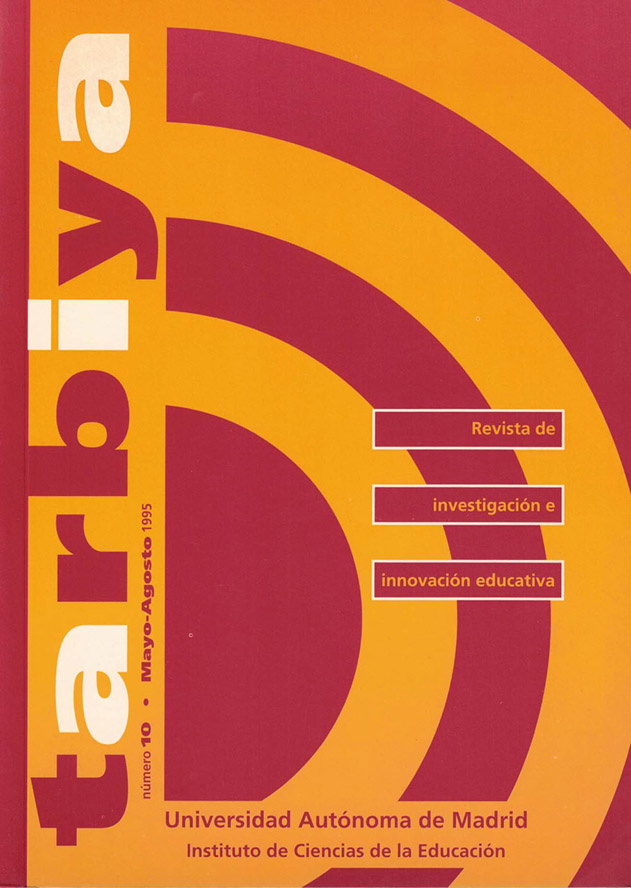Keywords:
Reasoning, History Teaching, History Learning, Historical explorations, EvidenceAbstract
Problems about historical content seem to have some specific features. This specificity partly comes from the epistemological characteristics of historical knowledge. On the other hand, these problems are ill-defined and can be studied from the informal reasoning perspective (Voss, Segal & Perkins, 1991). Argumentation and elaboration of explanations seem to be two important skills of the reasoning about historical contents.
This work offers a review of some research results obtained about the elaboration of historical explanations and the selection, evaluation and use of historical evidences both in children and adolescents and historians. Some implications for the teaching of History in different levels are developed.
Downloads
References
AGUILAR GASPAR, P. (1610). Expulsión de los moros de España por la S.C.R. Magestad del Rey don Phelipe Tercero, Valencia. Citado en De Bunes (1983).
ASENSIO, M.; CARRETERO, M. y POZO, J.I. (1986). La comprensión de la Historia. Pensamiento relativista. Cuadernos de Pedagogía, 133, 24-27.
ASHBY, R. y LEE, P. (1987). Discussing the evidence. Teaching History, 48.
BRITT, M.A.; ROUET, J.F; GEORGI, M.C. y PERFETTI, C.A. (1994). Learning from history texts: from causal analysis to argument models. En I. BECK, G. LEINHARDT and C. STAINTON (Eds.). Teaching and learning in history. Hillsdale, NJ: LEA.
DE BUNES, M.A. (1983). Los moriscos en el pensamiento histórico. Madrid: Cátedra.
CARRETERO, M. y LIMÓN, M. (1994a). La transmisión de valores e ideología en el conocimiento histórico: implicaciones para el aprendizaje-enseñanza de la Historia. Signos, 13, 52-56.
CARRETERO, M. y LIMÓN, M. (1994b). La comprensión del conocimiento histórico. Algunas cuestiones pendientes de investigación. Cuadernos de Pedagogía, 221, 24-26.
CARRETERO, M.; JACOTT, L. y LÓPEZ-MANJÓN, A. (1993). Perspectivas actuales en la comprensión y enseñanza de la causalidad histórica. El caso del descubrimiento de América. En J.A. BELTRÁN; V. BERMEJO; M.D. PRIETO y D. VENCE (Eds.), Intervención psicopedagógica. Madrid: Pirámide.
CARRETERO, M.; JACOTT, L.; LIMÓN, M.; LEÓN, J.A. y LÓPEZ MANJÓN, A. (1994). Historical Knowledge. Cognitive and Instructional Implications. En M. CARRETERO y J.F. VOSS (Eds.), Cognitive and Instructional Processes in Social Sciences and History. Hillsdale, NJ: LEA.
CARRETERO, M.; LIMÓN, M.; LÓPEZ MANJÓN, A.; JACOTT, L. y LEÓN, J.A. (1993). El conocimiento histórico. Una perspectiva cognitiva. Cuadernos de Pedagogía, n° 213, 10-14.
GARDNER, H. (1991). The unschooled mind: How children think and how schools should teach. New York: Basic Books. Trad. cast. La mente no escolarizada. Barcelona: Paidós, 1993.
HALLDÉN, O. (1986). Learning History. Oxford Review of Education, vol. 12 (1), 53-66.
HALLDÉN, O. (1993). Learners' conceptions of the subject matter being taught. A case from learning History. En R. SÄLJO (Ed.), Learning Discourse: Qualitative Research in Education. lntemational journal of Educational Research, 19,317-325.
KUNH, D. (1991). The skills of argument. Cambridge: Cambridge University Press.
KUHN, D.; PENNINGTON, N. y LEADBEATER, B. (1984). El pensamiento adulto desde una perspectiva evolutiva: el razonamiento de los jurados. En M. CARRETERO y J.A. GARCÍA MADRUGA, Lecturas de Psicología del pensamiento. Madrid: Alianza.
KUHN, D.; WEINSTOCK, M. y FLATON, R. (1994). Historical reasoning as Theory-Evidence Coordination. En M. CARRETERO y J.F. VOSS (Eds.), Cognitive and Instructional Processes in Social Sciences and History. Hillsdale, NJ: LEA.
LEE, P.; DICKINSON, A. y ASHBY, R. (1994). Researching children's ideas about History. Project Chata: Concepts of History and Teaching Approaches: 7 to 14. Ponencia presentada en el «Second International Seminar on History Learning and Instruccion», Madrid, UAM, 24-26 de julio.
LIMÓN, M. y CARRETERO, M. (1995). Razonamiento y solución de problemas con contenido histórico. En M. CARRETERO (Ed.), Construir y enseñar 2. Las Ciencias Sociales y la Historia. Buenos Aires: Aique. Madrid: Visor.
MEDLEY, R. (1988). Teaching and Learning an understanding of the concept of cause in History. Teaching History, abril, 27-31.
PÉREZ DE CULLA, V. (1695). Expulsión de los moriscos rebeldes de la Sierra y Muela de Cortes. Valencia. Citado en De Bunes (1983).
POZO, J.I. y CARRETERO, M. (1989). Las explicaciones causales de expertos y novatos en Historia. En M. CARRETERO, J.I. POZO y M. ASENSIO (Eds.), La enseñanza de las Ciencias Sociales. Madrid: Visor.
ROUET, J.F.; PERFETTI, CH. A; BRITT, M.A. y FAVART, M. (1994). Students Models and Argument Models in Students' Representation of Historical Controversies. Ponencia presentada en el «Second International Seminar on History Learning and Instruction», Madrid, UAM, 24-26 de julio.
TOPOLSKI,J. (1991). Toward an integrated model of historical explanation. History and Theory, 30, 324-338.
VOSS, J.F.; CIARROCHI, J. y CARRETERO, M. (1994). Causality in History: On the «Intuitive» Understanding of the Concepts of Sufficiency and Necessity. Ponencia presentada en el «Second International Seminar on History Learning and Instruction», Madrid, UAM, 24-26 de julio.
VOSS, J.F.; CARRETERO, M.; KENNET, J. y SILFIES, L.N. (1994). The collapse of the Soviet Union: A case study in causal reasoning. En: M. Carretero y J.F. Voss (Eds.), Cognitive and Instructional Processes in Social Sciences and History. Hiltsdale, NJ: LEA.
VOSS, J.F.; PERKINS, D.N. y SEGAL, J.W. (Eds.) (1991). Informal reasoning and Education. Hillsdale, N.J.: LEA.
VOSS, J.F.; WILEY, J. y KENNET, J. (1994). Student Perceptions of History and Historical Concepts. Ponencia presentada en el «Second International Seminar on History Learning and Instruction», Madrid, UAM, 24-26 de julio.
WINEBURG, S. (1991). Historical Problem Solving: A Study of the Cognitive Processes Used in the Evaluation of Documentary and Pictorial Evidence. Journal of Educacional Psychology, vol. 83 (1), 73-87.
WRIGT, G.H. von (1971). Explanation and Understanding. Cornell: Cornelt University Press. Trad. cast. Explicación y Comprensión. Madrid: Alianza, 1979.

